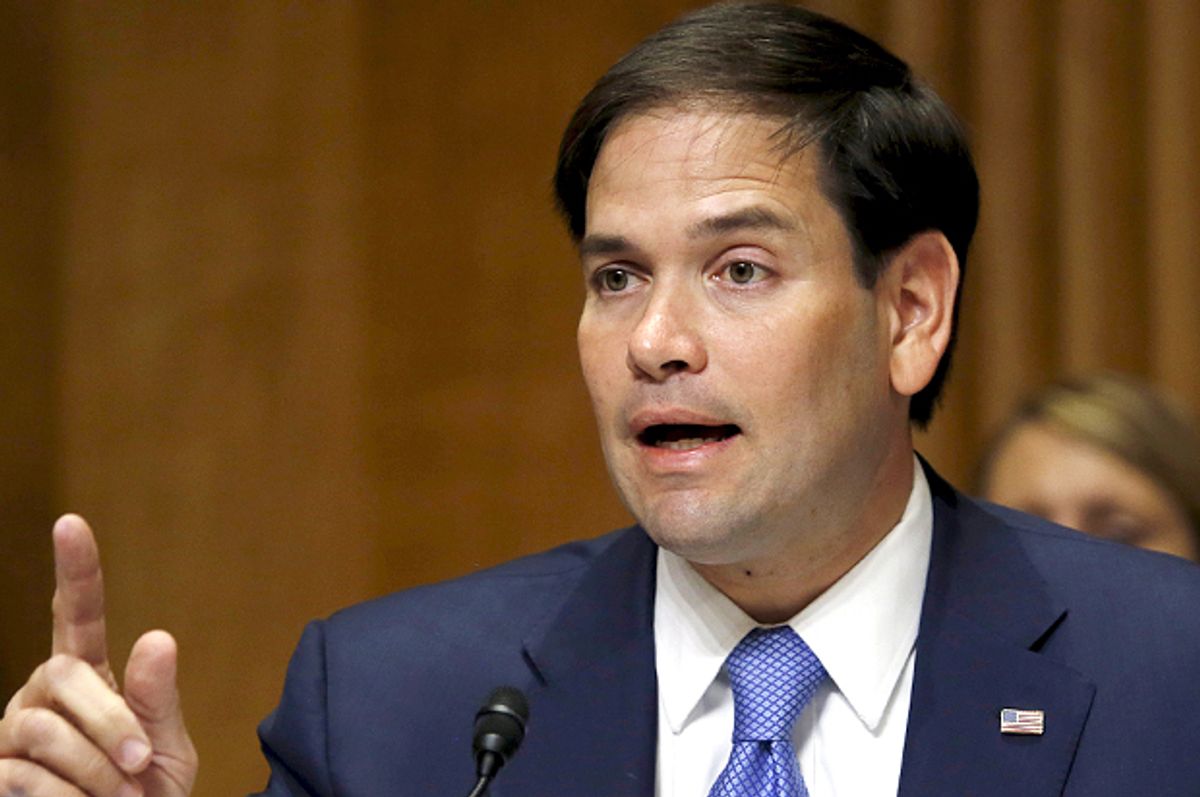This week, Catholics around the world did two entirely in character things. On Tuesday, the Vatican’s secretary of state Cardinal Pietro Parolin spoke in Rome about Ireland's historic recent approval of marriage equality — by a popular vote, no less — by saying, "The church must take account of this reality, but in the sense that it must strengthen its commitment to evangelization. I think that you cannot just talk of a defeat for Christian principles, but of a defeat for humanity." The other typically Catholic thing that happened? It's that Ireland welcomed marriage equality in the first place.
Despite its cleverly monolithic branding, Catholicism isn't a one size fits all proposition. That's why universally despised self-proclaimed Catholic and doomed presidential candidate Rick Santorum now finds himself in a religion in which he admits, "It’s sometimes very difficult to listen to the Pope." It explains the mistaken thinking of self-proclaimed Catholic and doomed presidential candidate Marco Rubio, who is so concerned that "If you do not support same-sex marriage, you are labeled a homophobe and a hater. So what’s the next step after that, after they’re done going after individuals? The next step is to argue that the teachings of mainstream Christianity, the catechism of the Catholic Church, is hate speech. That’s a real and present danger." The church's persistent image as still mired in the ooga booga of exorcisms and downplaying that whole sexually abusing children thing is part of the picture, undeniably. But the Catholics of the world are themselves a more progressive lot.
Here in the US, Catholic women use birth control about as much as non-Catholic women — a 2012 Guttmacher study found 98% of sexually active Catholic women have relied on something other than natural family planning to get the job done. More than half of American Catholics support marriage equality. A majority — 70% — favor the ordination of women. They even, by a small majority (50% to 48%) voted more for Obama than Romney in the last presidential election. A global 2014 Univision poll found that "78% of Catholics across all countries surveyed said they support the use of modern birth control," and "65% of surveyed Catholics said that abortion should be legal in some cases." And a 2014 report from the Public Religion Research Institute declared that "60% of American Catholics agree that in its statements about public policy, the Catholic Church should focus more on social justice and the obligation to help the poor, even if it means focusing less on issues like abortion and the right to life."
And how has all of this been playing out? France has of late been trying to gain approval for Laurent Stefanini, the current chief of protocol at the French Presidential Palace, to be named ambassador to the Holy See. In his quest, Stefanini, a practicing Catholic, has the support of Cardinal André Vingt-Trois, the cardinal primate of France. Oh, Stefanini is gay, by the way. And as Frank Bruni notes in Wednesday's New York Times, many of the nations that have been leading the charge for marriage equality — Belgium, Canada, Spain, Argentina, Portugal, Brazil, France, Uruguay, Luxembourg and Ireland — are predominantly Catholic. Bruni suggests part of the reason for this seeming discrepancy can be attributed to the notion that the word Catholic "includes not just worshipers who attend Mass weekly and perhaps tilt in a more conservative direction but those who go less frequently and those for whom Catholicism is as much an ethnic as a religious identity."
Yet I believe that for many of us, our spirituality is not merely ethnic or cultural. It just happens to embrace different ideals than we always hear coming out of Rome — even though Francis is certainly the closest thing to a pontiff with a clearcut sense of inclusiveness and social justice that we've seen since at least John XXIII. As with any large group of humans — and there are roughly 1.2 billion of us — we're going to disagree on a great many things. But if you prioritize values over dogma, how can you not believe in love and equality? How can you not want that for everyone? How can possibly you call yourself a Catholic if you don't? As the Irish Catholic — and gay — journalist Ursula Halligan explained earlier this month when she voiced her support for marriage equality, "I believe a Yes vote is the most Christian thing to do. I believe the glory of God is the human being fully alive, and that this includes people who are gay."

Shares